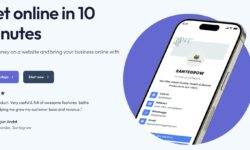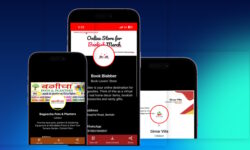Last updated on February 12th, 2025 at 12:28 am
A budgeting app helps you track income and expenses easily. It offers real-time insights into your spending habits. This way, you can set and stick to financial goals, avoiding debt and stress.
But you should be careful using a budgeting app as the app you use might be sharing your financial data with third parties, jeopardizing your privacy.
According to Incogni research, 60% of budgeting apps share your financial data with third-parties.
Sharing data with third parties risks your privacy and financial security. Such actions could lead to targeted ads, or worse, identity theft and fraud.
My friend, there are privacy concerns for budgeting apps. So you should always read the app’s privacy policy to know how they handle your information.
Findings of Incogni Research
The Google Play Store lists 38 possible data types that apps can collect. And the study found that budgeting apps collect an average of 9 types each.
The number isn’t striking, but the variety is. These apps gather data from 12 of 14 possible categories. They ignore only Health and Fitness and Web Browsing.
To grasp what data these budgeting apps focus on, the research team checked the categories and frequency of the collected data.
Here are important observations the research team made:
- Personal info like names and emails had 51 instances.
- Financial data such as credit scores appeared 31 times.
- App performance details came up 29 times.
- User activity in the app was noted 21 times.
60% of the apps studied share some data with outside parties. These apps give out an average of 5 types of data. Apps that share data collect 12 types on average, while non-sharing ones collect 6. This suggests sharing apps are also data-hungry.
The most commonly shared data types are:
- Device IDs: shared by nine apps
- App activity: shared by eight apps
- App performance: shared by eight apps
- Personal info: shared by seven apps
How To Choose an App That Is Good to Your Privacy
Here are some tips to pick a mobile app that is good to your privacy.
Know What Data Is Collected
Before downloading an app, visit its page on the app store. Most stores will have a section that lists the type of data the app collects. This could include your location, contacts, or even browsing history.
The less it collects, the better for your privacy.
Check Privacy Policy
It’s easy to ignore the privacy policy, but don’t. This document tells you how the app uses, stores, and potentially shares your information.
Make it a habit to read this before you download anything.
Look for Third-Party Sharing
The privacy policy should also mention if the app shares data with third parties. Be wary of apps that do, as this can expose you to targeted ads and other risks.
Always opt for apps that limit data sharing.
Permissions
When installing an app, it will request permissions like access to your camera, contacts, or location. Be cautious. Only grant permissions that are essential for the app to function.
Reviews and Recommendations
Check out user reviews and expert analyses online. These often mention any privacy concerns and can give you an idea of how trustworthy an app is.
Reviews help you make an informed choice.
Use Trusted Stores
Stick to well-known app stores like Google Play for Android or the App Store for Apple. These platforms have security measures to weed out shady apps.
Stay away from third-party stores.
Regularly Update Apps
Developers often release updates to fix security loopholes. Make sure your apps are up-to-date to benefit from these improvements.
Outdated apps are more vulnerable to breaches.
Test the App
Once you’ve downloaded the app, explore its privacy settings. Make adjustments to enhance your security. If the app doesn’t offer enough control over your data, consider uninstalling it.
In addition to the above tips, you should also consider using privacy tools like VPNs to fortify your defence.
About The Research
Incogni’s team identified 20 popular budgeting apps from Google Play Store, based on social media and blog recommendations. They gathered info on three aspects: data collected from users, data shared with third parties, and app permissions. The goal was to compare these apps and find average trends. Data collection occurred on July 17-18, 2023. Click here to learn more about the research.
Additional Resource:



